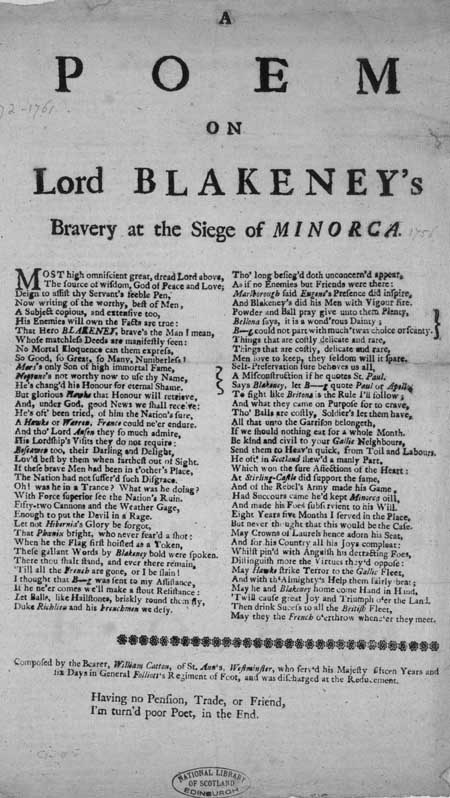Commentary
This ballad begins: 'Most high omniscient great, dread Lord above, / The source of wisdom, God of Peace and Love, / Deign to assist thy Servant's feeble Pen, / Now writing of the worthy, best of Men'. At the bottom we are told that the piece was composed by 'the Bearer, William Catton', who was an ex-foot-soldier in General Folliott's regiment. The Siege of Minorca took place in 1756, at the start of the Seven Years War, which pitted Britain, Prussia and Hanover against Austria, France, Russia, Saxony and Sweden. Sir William Blakeney (1672-1761), Lieutenant Governor of Minorca, was forced to surrender the island to the French after a famous defence. The author of this piece says he served there for eight years. It was not uncommon for pedlars to publish their own verse, and this is an excellent example. Early ballads were dramatic or humorous narrative songs derived from folk culture that predated printing. Originally perpetuated by word of mouth, many ballads survive because they were recorded on broadsides. Musical notation was rarely printed, as tunes were usually established favourites. The term 'ballad' eventually applied more broadly to any kind of topical or popular verse.
View Transcription | Download PDF Facsimile
|
 |
Date of publication:
1756 shelfmark: L.C.Fol.76(140)
 View larger image
View larger image
|


